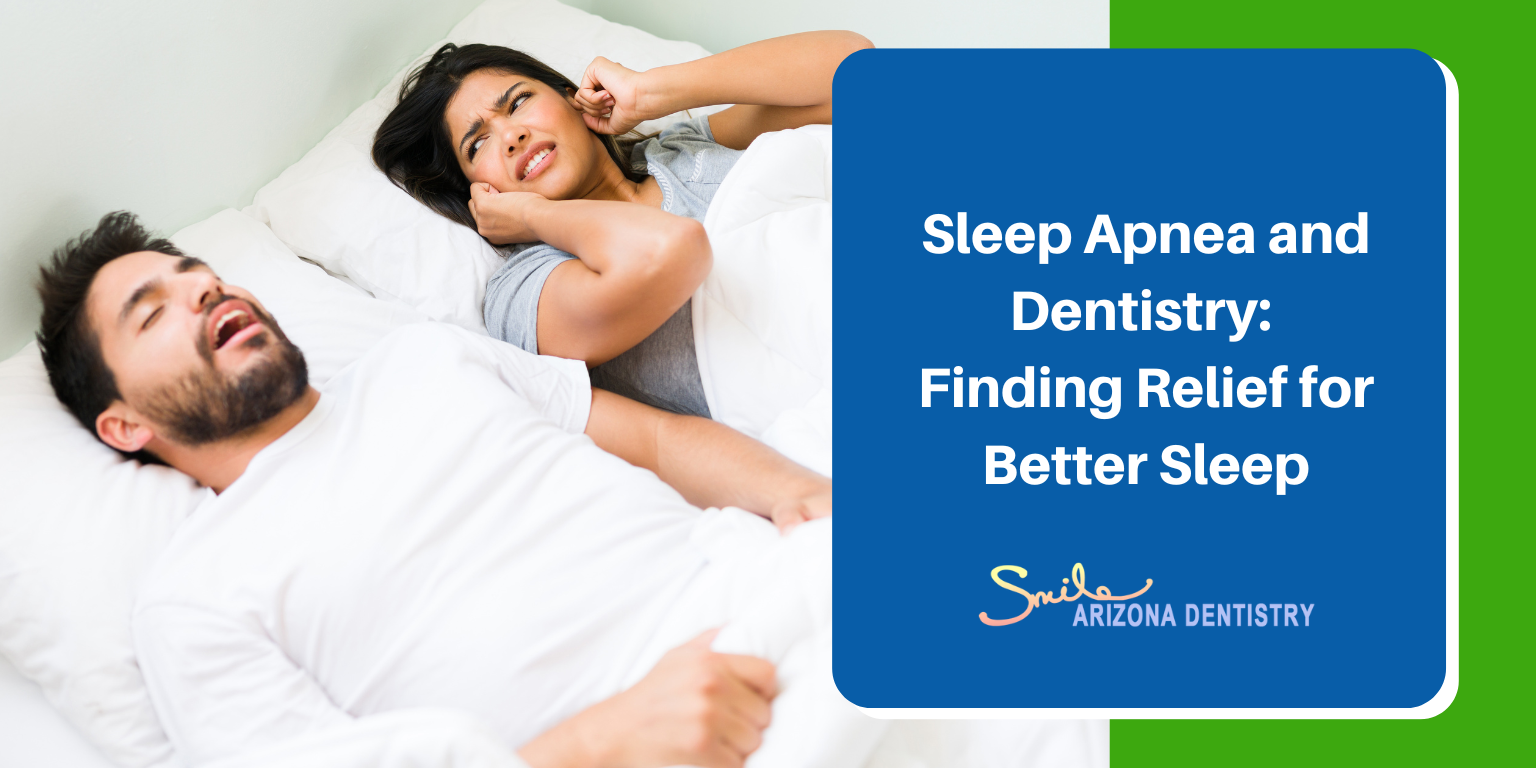


Sleep apnea is a common sleep disorder affecting 25 million Americans. Approximately 26% of adults between 30 and 70 years suffer from this condition. It causes disintegrated sleep and various health complications.
While many think that sleep apnea is associated with respiratory conditions, there is a link between sleep apnea and dentistry, which is not widely known. Dentists play a crucial role in diagnosing and treating sleep apnea, as they can precisely identify associated dental manifestations.
Let us explore the intricate connection between sleep apnea and dentistry, discussing how dentists can help manage and improve this disorder.
Sleep apnea is when breathing interruptions occur repeatedly during sleep cycles. It is due to tissue collapses of the airway resulting from weak airway muscles, being overweight, a large tongue, etc. It is often accompanied by insomnia, loud snoring, and extreme tiredness during the day.
Sleep apnea can occur in two forms, including:
It is the most widespread type that occurs when soft tissues in the mouth block your airway during sleep. Risk factors for this type are enlarged mouth features and obesity.
It is a rare type that occurs when your brain fails to send signals to the muscles to breathe. Conditions such as brain tumors, stroke, or heart failure can cause central sleep apnea.
Complex sleep apnea syndrome is a life-threatening condition that occurs when you have both obstructive and central sleep apnea.
Having snoring does not mean you will have sleep apnea. If you experience frequent and loud snoring, check out for the other symptoms too, including:
Adequate and good sleep is crucial in maintaining good health and minimizing unpleasant oral conditions such as bad breath, mouth ulcers, and the onset and advancement of gum disease (periodontal disease). Sleep apnea-related dental issues include:
1. TMJ Disorder
A study reveals that individuals who exhibited a higher likelihood of having sleep apnea based on their risk factors were found to be three times more prone to experiencing TMJ disorders. Furthermore, individuals showing two or more signs of sleep apnea have a 73% increased risk of developing a TMJ disorder despite their age, smoking history, or weight.
Signs of TMJ Disorder:
2. Bruxism
Bruxism is characterized by teeth grinding and jaw clenching. It often occurs when you are asleep, causing headaches and jaw and neck pain while waking up. According to research, 31% of adults have bruxism, and 1/4th of them may have sleep apnea.
Signs of Bruxism:
3. Mouth Breathing
You will breathe through your mouth if you have sleep apnea. It often causes periodontal disease and gingivitis. According to research, 62.3% of sleep apnea patients may have periodontal disease, and gingivitis may affect 34.1% of sleep apnea patients.
Signs of Mouth Breathing:
Some sleep apnea symptoms are dental problems-specific, including:
If you notice any of the above symptoms, it is time to schedule an appointment with your dentist for proper diagnosis and treatment.
Your dentist will review your symptoms and may recommend visiting your general physician if comprehensive diagnosis and treatment are required. Meanwhile, your dentist will treat your dental symptoms from sleep apnea by improving sleep quality, treatments for dry mouth and TMJ, orthodontic treatment to correct misaligned teeth, and a custom dental mouthpiece to restore teeth grinding/clenching. Dental mouthpieces primarily work effectively to combat sleep apnea. They slightly move your jaw forward to prevent the collapsing of soft tissues in your airway.
If you are looking for a competent dentist treating sleep apnea symptoms specific to oral problems, look no further than Smile Arizona Dentistry. With our state-of-the-art technology and advanced solutions, we accurately diagnose and effectively treat sleep apnea, helping you achieve better sleep and improved oral health. Schedule your appointment today to experience prompt relief from your sleepless nights.